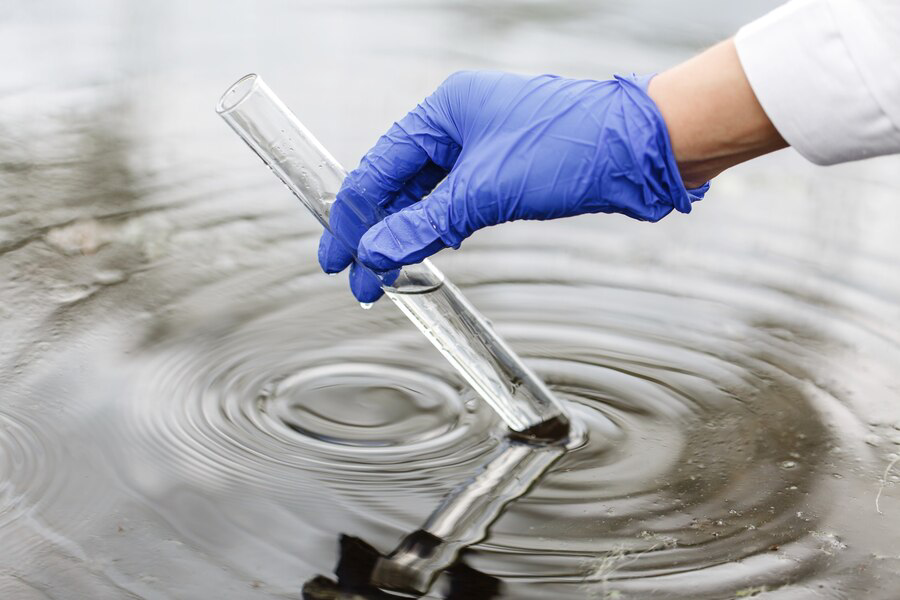In a world grappling with escalating water challenges, “Don’t Let Water Woes Worsen: A Deep Dive into Restoration Strategies” emerges as a beacon of insight. As climate change intensifies and populations burgeon, the demand for water resources surges, exposing vulnerabilities in our ecosystems. This article delves into a comprehensive exploration of restoration strategies, offering a profound examination of innovative approaches to mitigate the burgeoning water crisis. From sustainable conservation methods to cutting-edge technologies, the discourse navigates the intricate web of water-related challenges. By shedding light on practical solutions, this deep dive aims to inspire a collective commitment to safeguarding our most vital resource, ensuring a sustainable and resilient future for generations to come.
Understanding the Water Crisis

The escalating global water crisis demands a critical examination of its roots. Climate change, fueled by human activities, exacerbates droughts and alters precipitation patterns. Simultaneously, rapid population growth strains water resources, intensifying scarcity. Unsustainable consumption practices compound the issue, depleting freshwater reservoirs at an alarming rate.
This section illuminates the interconnected factors driving the crisis, emphasizing the imperative of immediate action. Addressing climate change, managing population growth, and adopting sustainable consumption habits emerge as pivotal steps to avert the impending deepening of the water crisis, ensuring a sustainable future for the planet.
Ecosystem-Based Restoration
Ecosystem-based restoration emerges as a cornerstone in the quest for sustainable water solutions. This segment delves into the profound significance of strategies rooted in ecosystem preservation. Wetland rehabilitation, vital for water filtration and flood control, takes center stage. Concurrently, forest conservation plays a pivotal role in maintaining hydrological balance and preventing soil erosion. Biodiversity preservation is explored for its contribution to ecosystem resilience. By comprehensively examining these restoration approaches, this blog underscores the intrinsic connection between healthy ecosystems and the quantity and quality of available water, advocating for their prioritization in global conservation agendas.
Innovative Technologies for Water Management
This section explores cutting-edge technologies like AI-driven water monitoring systems, desalination advancements, and smart irrigation solutions, offering insights into how technology can revolutionize water resource management.
AI-Driven Water Monitoring Systems
In the era of smart solutions, AI-driven water monitoring systems stand out. This section delves into the transformative impact of artificial intelligence on real-time water quality assessments, early leak detection, and efficient resource allocation, ushering in a new era of precision in water management.
Desalination Advancements
Explore the cutting-edge advancements in desalination technology, highlighting the potential to turn seawater into a viable freshwater source. Examine the environmental implications, cost-effectiveness, and scalability of desalination methods, unlocking insights into their role in addressing water scarcity on a global scale.
Smart Irrigation Solutions
Discover the role of smart irrigation in optimizing water use in agriculture. From sensor-based systems to automated precision irrigation, this segment explores how technology-driven solutions enhance crop yield while minimizing water consumption, paving the way for sustainable agricultural practices.
Technology Revolutionizing Water Resource Management
Synthesize the impact of these technologies on water resource management. Discuss the synergies between AI-driven monitoring, desalination, and smart irrigation, illustrating how an integrated technological approach can revolutionize global water sustainability. Highlight ongoing projects and prospects for these innovations.
In a rapidly evolving world, embracing innovative technologies is paramount for effective water management. As we navigate the complexities of AI, desalination, and smart irrigation, the future holds promise for sustainable solutions that can safeguard our precious water resources.
Community Engagement and Education
Delve into the importance of community involvement in water conservation efforts, discussing successful community-driven initiatives, educational programs, and grassroots movements that have proven effective in raising awareness and fostering sustainable practices.
Community-Driven Initiatives
Explore successful community-driven water conservation initiatives worldwide. Highlight case studies showcasing how local communities, driven by passion and commitment, have implemented impactful projects to address water scarcity and promote responsible water usage.

Educational Programs for Water Conservation
Dive into the significance of educational programs in shaping a water-conscious society. Discuss initiatives that empower individuals with knowledge about water conservation, emphasizing the role of schools, NGOs, and governmental bodies in fostering a culture of sustainable water practices.
Grassroots Movements for Water Sustainability
Examine the power of grassroots movements in advocating for water sustainability. Illustrate examples of communities organizing and mobilizing to address water-related challenges, emphasizing the collective strength of individuals in shaping policies and practices.
In the journey towards water conservation, communities play a pivotal role. By spotlighting successful initiatives, educational endeavors, and grassroots movements, we underscore the transformative power of collective action in building a water-resilient future.
Policy and Governance Reforms
Uncover the role of policy and governance in addressing water issues, analyzing successful case studies, and proposing potential reforms at local, national, and international levels to ensure equitable water distribution and management.
Role of Policy in Water Management
Examine the impact of policies on water management, dissecting successful case studies that demonstrate effective legislative frameworks. Discuss the role of national and local policies in balancing water distribution, protecting ecosystems, and ensuring sustainable water use.
International Collaborations for Water Solutions
Explore successful international collaborations addressing water challenges. Analyze case studies of nations coming together to implement joint water management strategies, emphasizing the importance of global cooperation in ensuring equitable access to water resources.
Local Governance Initiatives
Dive into initiatives at the local governance level that have proven instrumental in addressing water issues. Showcase examples of municipalities implementing innovative policies, regulations, and community engagement strategies to ensure sustainable water practices at the grassroots level.
As we navigate the complexities of water governance, understanding successful policies, collaborations, and local initiatives is crucial. By advocating for reforms, we can pave the way for a more equitable and sustainable approach to water management.
Water Recycling and Reuse
Explore the benefits and challenges of water recycling and reuse systems, showcasing successful examples from around the world. Discuss how these practices can alleviate water scarcity and reduce environmental impact.
Benefits of Water Recycling
Explore the multifaceted benefits of water recycling, from conservation to reducing environmental impact. Discuss how treated wastewater can be repurposed for various applications, such as irrigation, industrial processes, and even potable water, contributing to a more sustainable water cycle.
Challenges in Water Recycling Systems
Examine the challenges inherent in water recycling and reuse systems. Discuss issues such as technological limitations, public perception, and regulatory hurdles. Highlight ongoing research and innovations aimed at overcoming these challenges and improving the efficiency of water recycling practices.
Successful Global Examples of Water Recycling
Showcase successful examples of water recycling and reuse systems from around the world. Illustrate how cities and industries have implemented innovative technologies and policies to close the water loop, promoting a circular economy and reducing dependence on freshwater sources.
Water recycling and reuse are pivotal components of a sustainable water strategy. By understanding the benefits, challenges, and global successes, we can pave the way for a future where water is treated as a valuable, reusable resource.
Investing in Green Infrastructure
The concept of green infrastructure heralds a paradigm shift in water restoration, focusing on integrating natural elements into urban landscapes. Green infrastructure, encompassing features like permeable pavements and green roofs, plays a pivotal role in water conservation. Permeable pavements allow rainwater infiltration, curbing runoff and replenishing groundwater. Green roofs act as natural sponges, capturing rainfall and reducing stormwater runoff while enhancing urban biodiversity. Successful projects worldwide showcase the efficacy of these strategies, proving that green infrastructure is not merely an environmental enhancement but a fundamental solution for restoring water systems. By recognizing and investing in these sustainable practices, communities can build resilience against water-related challenges and promote a healthier coexistence with nature.
Collaborative Initiatives and Partnerships
Highlighting the vital importance of collaboration, this section underscores the strength derived from partnerships among governments, NGOs, and the private sector in tackling water restoration. By examining successful collaborations, we witness the transformative impact of collective efforts. These partnerships transcend traditional boundaries, pooling resources, expertise, and perspectives to implement impactful water restoration projects. From joint research initiatives to community-based programs, collaborative approaches exemplify the interconnectedness required to address complex water challenges effectively. Emphasizing this strength of unity, the blog advocates for fostering a culture of collaboration to navigate the dynamic landscape of water management successfully. As we forge ahead, Precision Restoration, Inc. remains dedicated to supporting and leading collaborative endeavors for sustainable water solutions.
We’ve explored innovative technologies, community engagement, policy reforms, green infrastructure, and collaborative initiatives, all vital components of sustainable water management. At Precision Restoration, Inc., we understand the urgency of these strategies and proudly contribute to environmental solutions. Our commitment to the Edmond community and beyond is unwavering, as we employ cutting-edge technologies and actively engage in collaborative partnerships. For inquiries, solutions, or to embark on water restoration projects, contact us at 844-245-7979. Together, we can forge a resilient future, ensuring water security for Edmond, Oklahoma, and the broader USA. Our passion lies in preserving water as a precious resource for generations to come.



